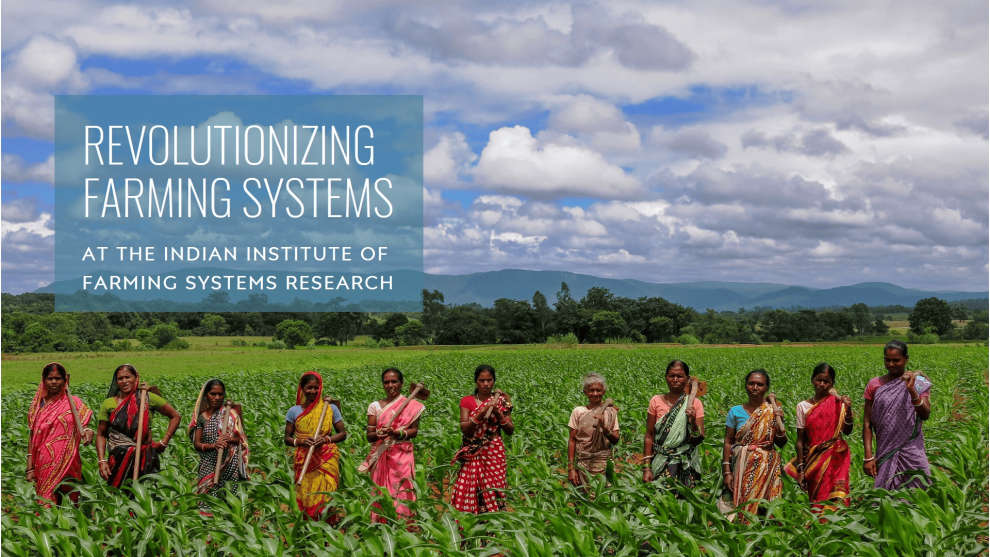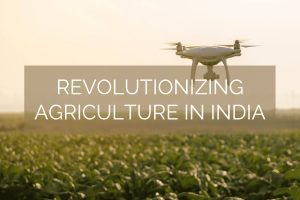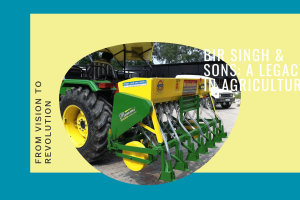The ICAR-Indian Institute of Farming Systems Research (IIFSR) has been at the forefront of advancing sustainable agricultural practices in India for over 70 years. With its extensive research and innovative solutions, the institute has played a key role in enhancing farming productivity, optimizing nutrient use, and introducing cropping systems that adapt to India’s diverse agricultural landscapes. The BharatiyaMedia Team recently visited IIFSR in Modipuram, Uttar Pradesh, to gain firsthand insights into the institute’s groundbreaking work in farming methodologies, including Multi Cropping, Layer Farming, and Poly Farming. Know all about ICAR-Indian Institute of Farming Systems Research (IIFSR) and how its initiatives are shaping the future of Indian agriculture with sustainable, high-yield solutions.
A Historical Perspective: From Soil Fertility Research to Integrated Farming Systems
The Early Beginnings (Pre-Independence)
The roots of IIFSR’s research efforts trace back to the 1940s, even before India achieved independence. During this period, agricultural research was primarily managed by the then ‘Imperial Council of Agricultural Research’ (ICAR’s predecessor). In the late 1940s, Dr. A. B. Stewart of the Macaulay Institute of Soil Research, Aberdeen, UK, was invited to India to conduct a review of soil fertility and the effectiveness of manuring practices in Indian agriculture. Dr. Stewart’s recommendations, published in 1947, highlighted the need for systematic fertilizer experimentation and established a foundational understanding of soil fertility management.
One key recommendation in his report was to conduct simple fertilizer trials directly on farmers’ fields alongside more complex experiments at select research centers. This approach allowed researchers to gather accurate data under varying environmental and soil conditions and laid the groundwork for evidence-based agricultural advisories. Following his report, in 1953, “Simple Fertilizer Trials on Cultivator’s Fields” was launched as part of the Indo-American Technology Cooperation Agreement, under the “Soil Fertility and Fertilizer Use Project.” This initiative marked the beginning of systematic agronomic experiments in India, which would later evolve into the national cropping systems research program.
The All India Coordinated Agronomic Experiments Scheme (AICAES)
In 1956, the model agronomic experiments, which involved detailed research on selected sites, were incorporated into the project under the newly titled All India Coordinated Agronomic Experiments Scheme (AICAES). This scheme introduced research areas such as irrigation management, crop nutrition, cultural practices, chemical weed control, and multiple cropping methods, all of which significantly expanded the scope of agronomic research.
In 1968-69, AICAES was further advanced and restructured as the All India Coordinated Agronomic Research Project (AICARP), which included two primary components: Model Agronomic Experiments and Simple Fertilizer Trials. Despite these expansions, the primary focus remained on improving soil fertility and optimizing fertilizer use efficiency.
Transitioning from Crop-Centric to System-Based Research: The Rise of Cropping Systems Research
With the advent of the Green Revolution in India during the 1960s, agricultural research initially focused predominantly on individual crops in isolation, aiming to maximize yields. However, as the environmental and resource-related challenges associated with intensive farming became apparent, a need for a more integrated, system-oriented approach to agricultural research emerged.
Recognizing the importance of cropping systems over single-crop studies, the Government of India upgraded AICARP to a Directorate during the 7th Five-Year Plan, establishing the Project Directorate for Cropping Systems Research (PDCSR) in March 1989, headquartered in Modipuram, Meerut, Uttar Pradesh. This directorate aimed to address the sustainability issues of Indian agriculture by conducting research on cropping systems and their long-term impacts on soil health, productivity, and resource use efficiency.
Evolution into ICAR-IIFSR: A New Mandate for Integrated Farming Systems Research
In response to the evolving challenges in agriculture, PDCSR was restructured during the 11th Five-Year Plan (2009-2010) and rebranded as the Project Directorate for Farming Systems Research (PDFSR). This transition marked a paradigm shift, as the focus expanded beyond cropping systems to encompass all aspects of integrated farming systems (IFS), including animal husbandry, agroforestry, aquaculture, and horticulture.
During the 12th Five-Year Plan in 2014, PDFSR was elevated to the ICAR-Indian Institute of Farming Systems Research (IIFSR). This restructuring included the integration of the All India Coordinated Research Project on Integrated Farming Systems (AICRP on IFS) and the All India Network Project on Organic Farming (AINP-OF). Together, these programs cover 74 centers and 20 cooperating centers across India, enabling a comprehensive approach to farming systems research and addressing diverse agro-climatic zones, soil types, and farming practices.
IIFSR’s Current Structure and Research Focus
IIFSR today operates with three dedicated research divisions, a project coordinating unit, and a specialized section for integrated research. This organizational structure allows the institute to pursue its mandate effectively, focusing on the following key areas:
- Profitability and Sustainability: Research in IFS aims to improve farm incomes while ensuring long-term productivity. This holistic approach considers the interactions between crops, livestock, and other farming enterprises to enhance resource use efficiency.
- Resource Use Efficiency: IFS research seeks to optimize the use of natural resources such as water, soil, and nutrients. By diversifying farm outputs and utilizing organic resources, IFS minimizes resource wastage and promotes a circular economy at the farm level.
- Food and Nutritional Security: Integrating multiple farming components helps farmers produce a variety of crops, thereby contributing to food and nutritional security. IFS also emphasizes sustainable practices that can reduce dependency on external inputs.
- Climate Resilience: Through diversified farming systems, IFS increases the resilience of farms to climate change impacts. Diverse farm activities reduce the risk of crop failure and improve the adaptability of farming systems under changing climatic conditions.
- Employment Generation: By combining various farm enterprises, IFS provides year-round employment opportunities for farm families, reducing rural-urban migration and creating a robust rural economy.
Impact and Achievements of IIFSR’s Integrated Farming Systems Research
Since its re-establishment as IIFSR, the institute has achieved significant milestones:
- Enhanced Productivity: Integrated farming systems have demonstrated higher productivity per unit area than conventional monocropping systems. This increase has resulted from optimized resource allocation, increased nutrient recycling, and efficient water usage.
- Improved Farmer Income: Studies have shown that farmers practicing IFS earn higher incomes due to multiple revenue streams from various farm enterprises. This resilience has been critical for smallholder farmers, especially in regions prone to environmental stressors.
- Advancement in Organic Farming: The AINP-OF, now a part of IIFSR, has contributed significantly to organic farming practices, focusing on eco-friendly production methods and enhancing soil health through organic inputs.
- Technology Transfer and Capacity Building: IIFSR actively conducts farmer training programs, demonstration projects, and workshops to disseminate IFS practices. The institute’s outreach initiatives have reached thousands of farmers, helping them adopt sustainable farming techniques.
Conclusion
ICAR-IIFSR’s journey from a soil fertility project to a premier institution focusing on integrated farming systems reflects the evolution of Indian agriculture itself. By championing sustainable and profitable farming practices, IIFSR addresses contemporary challenges, such as climate change, resource scarcity, and food security, with a systems-based approach. The institute’s work, rooted in a history of innovation and adaptability, will continue to shape the future of Indian agriculture, empowering farmers to build resilient, diversified, and sustainable agricultural systems.
Read this article also…
Future of Indian Agriculture: Insights from the Indian Institute of Farming Systems Research (IIFSR)
Integrated Farming System (IFS): A Comprehensive Approach to Sustainable Agriculture in India












Add Comment